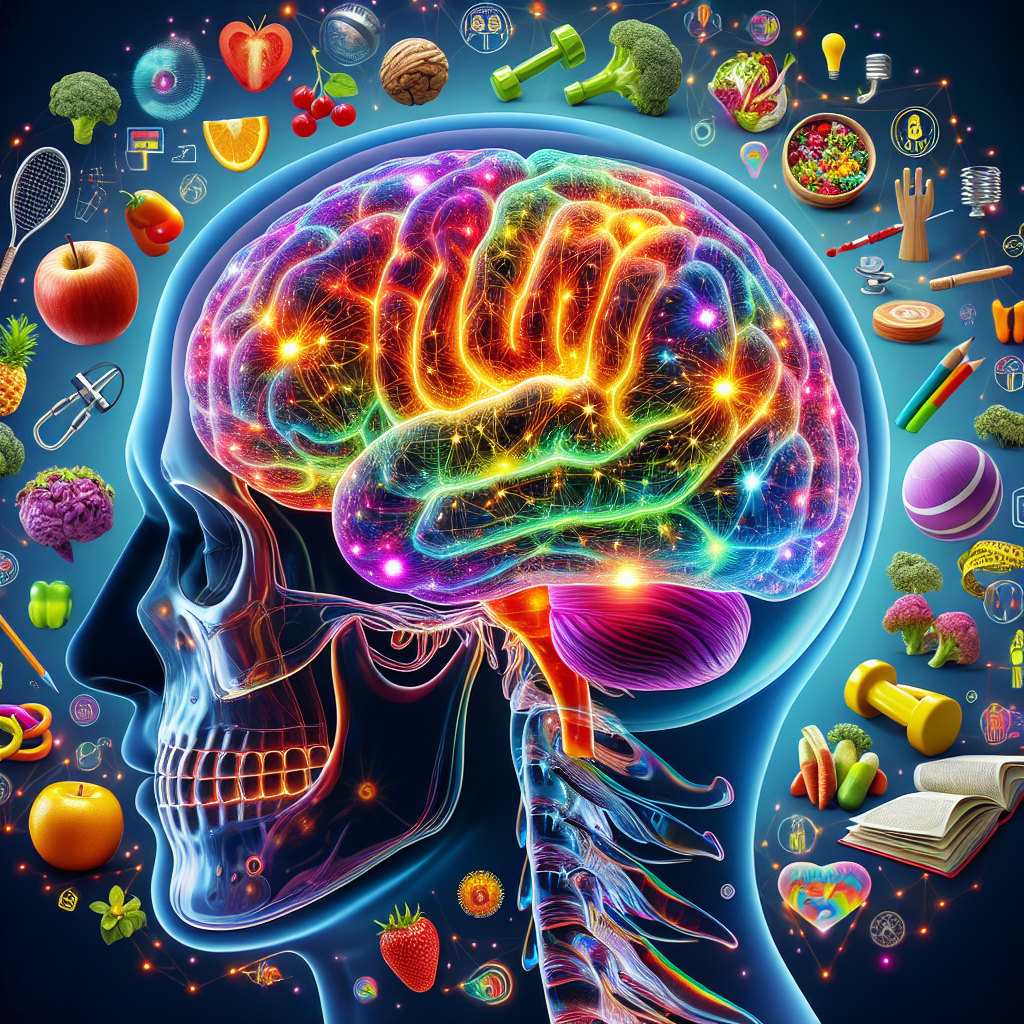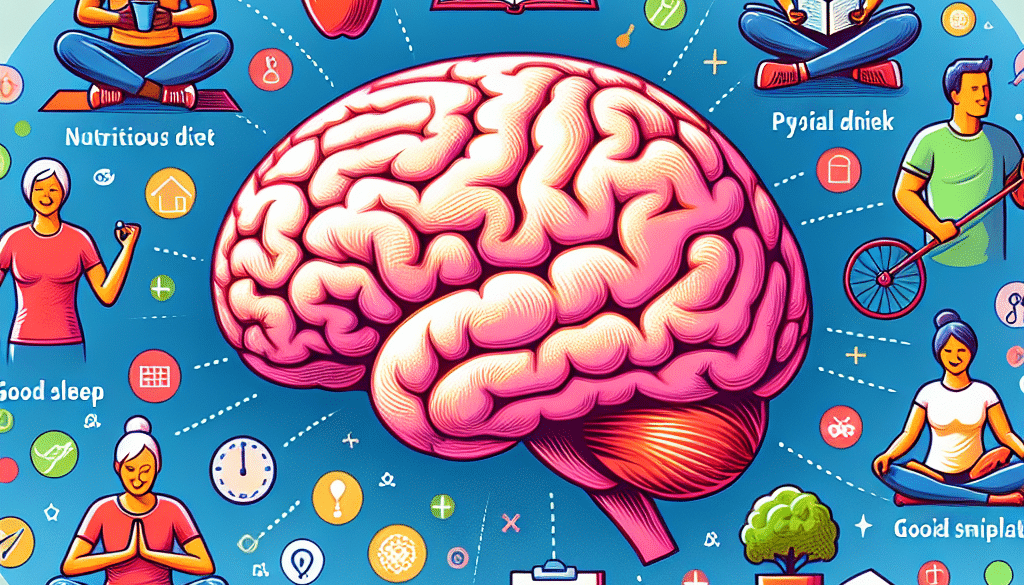Defining Optimal Brain Health in Adults
-
Table of Contents
- Optimal Brain Health in Adults: Defining the Key Elements
- Understanding Brain Health
- The Pillars of Optimal Brain Health
- Cognitive Function and Mental Agility
- Emotional Well-being
- Physical Health
- Social Engagement
- Nutrition and Brain Health
- Sleep Quality
- Conclusion: Tying Together Brain Health Strategies
- Enhance Your Brain Health with ETChem’s Protein Products
Optimal Brain Health in Adults: Defining the Key Elements

Brain health is a critical component of overall wellness, particularly as we age. Optimal brain health encompasses a range of factors, from cognitive function and mental agility to emotional well-being and neurological resilience. Understanding and striving for optimal brain health can lead to improved quality of life, enhanced productivity, and a reduced risk of neurodegenerative diseases. This article delves into the defining aspects of optimal brain health in adults, supported by relevant examples, case studies, and statistics.
Understanding Brain Health
Brain health refers to the ability to remember, learn, play, concentrate and maintain a clear, active mind. It’s about being able to draw on the strengths of your brain—information management, logic, judgment, perspective, and wisdom. Simply put, brain health is about making the most of your brain and helping reduce some risks to it as you age.
The Pillars of Optimal Brain Health
To achieve optimal brain health, several key areas must be addressed. These include:
- Cognitive Function
- Emotional Well-being
- Physical Health
- Nutrition
- Sleep Quality
Cognitive Function and Mental Agility
Cognitive function encompasses various mental abilities, including learning, thinking, reasoning, remembering, problem-solving, decision-making, and attention. Mental agility refers to the speed and efficiency with which an individual can process information, adapt to new situations, and solve problems.
Studies have shown that engaging in mentally stimulating activities, such as learning a new language or playing musical instruments, can help maintain and even improve cognitive function. For example, a study published in the Journal of the American Geriatrics Society found that adults who engage in cognitive activities such as reading books or playing games are less likely to develop cognitive impairment.
Emotional Well-being
Emotional well-being is a critical aspect of brain health. It involves the ability to manage stress, adapt to change, and maintain a balanced mood. High levels of stress and poor emotional health can negatively impact cognitive function and increase the risk of mental health disorders.
Mindfulness meditation, regular exercise, and strong social connections are all effective strategies for improving emotional well-being. A Harvard study revealed that mindfulness meditation can lead to changes in brain regions associated with memory, sense of self, empathy, and stress.
Physical Health
Physical health is inextricably linked to brain health. Regular physical activity increases blood flow to the brain, which can help support the growth of new brain cells and connections. Exercise has also been shown to improve mood and sleep while reducing stress and anxiety.
The Alzheimer’s Research & Prevention Foundation reports that regular physical exercise can reduce the risk of developing Alzheimer’s disease by up to 50%. Even for those who have begun to develop cognitive problems, exercise can help slow further deterioration.
Social Engagement
Social engagement and maintaining strong relationships are vital for mental health. Social activities can help ward off loneliness and depression, both of which can have a detrimental effect on brain health.
Research indicates that individuals with an active social life have a lower risk of memory decline. A study from the American Journal of Public Health found that older adults with a large network of friends were 22% less likely to develop dementia than those with fewer friends.
Nutrition and Brain Health
What we eat directly affects the structure and function of our brains. A nutritious diet rich in antioxidants, good fats, vitamins, and minerals provides energy and aids in protecting against brain diseases. Consuming foods high in omega-3 fatty acids, such as salmon and flaxseeds, can help reinforce brain cell membranes and stimulate the production of new brain cells.
A study published in Neurology found that a Mediterranean diet, which is high in fruits, vegetables, olive oil, and whole grains, can help reduce the risk of cognitive decline with age.
Sleep Quality
Sleep plays a pivotal role in brain health. During sleep, the brain removes toxins that accumulate during waking hours. Poor sleep patterns are linked to higher risks of cognitive decline and Alzheimer’s disease.
Research from the National Institute of Neurological Disorders and Stroke suggests that sleep disturbances can be an early indicator of cognitive decline, making quality sleep a priority for maintaining brain health.
Conclusion: Tying Together Brain Health Strategies
Optimal brain health in adults is a multifaceted concept that requires a holistic approach. By focusing on cognitive function, emotional well-being, physical health, social engagement, nutrition, and sleep quality, individuals can work towards maintaining and improving their brain health. It’s important to note that these strategies are interconnected; improvements in one area can lead to benefits in others.
Embracing a lifestyle that incorporates these elements can lead to a sharper mind, a more balanced emotional state, and a reduced risk of neurodegenerative diseases. As research continues to evolve, it’s clear that taking proactive steps towards brain health can have a profound impact on our overall well-being as we age.
Enhance Your Brain Health with ETChem’s Protein Products
Protein is a vital nutrient for maintaining optimal brain health. ETChem’s range of high-quality protein products, including various types of collagen, can support brain health by providing the essential amino acids necessary for maintaining the structure and function of brain cells.
Incorporating ETChem’s protein products into your diet can help ensure that your brain has the nutrients it needs to perform at its best. Whether you’re looking to support cognitive function, improve emotional well-being, or simply maintain a healthy brain as you age, ETChem’s protein offerings can be a valuable addition to your health regimen.
About ETChem:
ETChem, a reputable Chinese Collagen factory manufacturer and supplier, is renowned for producing, stocking, exporting, and delivering the highest quality collagens. They include marine collagen, fish collagen, bovine collagen, chicken collagen, type I collagen, type II collagen and type III collagen etc. Their offerings, characterized by a neutral taste, instant solubility attributes, cater to a diverse range of industries. They serve nutraceutical, pharmaceutical, cosmeceutical, veterinary, as well as food and beverage finished product distributors, traders, and manufacturers across Europe, USA, Canada, Australia, Thailand, Japan, Korea, Brazil, and Chile, among others.
ETChem specialization includes exporting and delivering tailor-made collagen powder and finished collagen nutritional supplements. Their extensive product range covers sectors like Food and Beverage, Sports Nutrition, Weight Management, Dietary Supplements, Health and Wellness Products, ensuring comprehensive solutions to meet all your protein needs.
As a trusted company by leading global food and beverage brands and Fortune 500 companies, ETChem reinforces China’s reputation in the global arena. For more information or to sample their products, please contact them and email karen(at)et-chem.com today.




